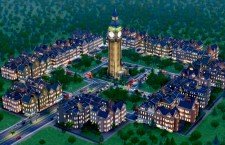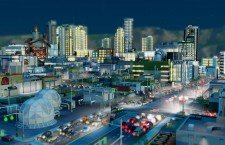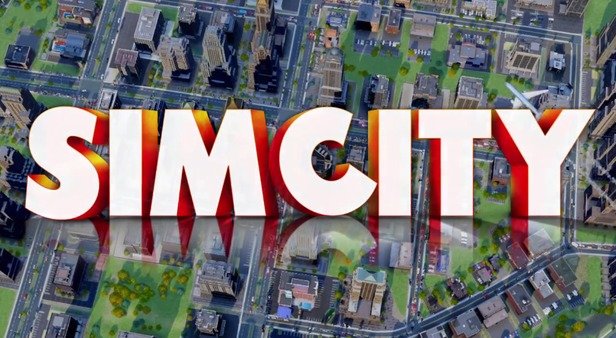EA has done the unthinkable: they’ve made Diablo 3‘s Error 37 seem like a completely minor inconvenience. When SimCity launched at midnight EST on March 5th, 2013, they initiated one of the biggest launch catastrophes in the history of video games. With only four servers and a comically bizarre queuing system, their online infrastructure buckled under the weight of gamers who had waited 10 years for a sequel to SimCity 4. Since the launch, EA and developer Maxis have taken very minor steps to fix problems faced by many who are simply trying to play the game. Even without the launch day fiasco, the newly re-imagined SimCity still has plenty of problems. Most of these problems point to the obvious anti-pirating steps of always-online DRM and the methods taken to shroud them as gameplay features.
 The newest iteration of SimCity is essentially a multiplayer city builder. Anyone who tells you that this is a single-player game–in any shape or form–is flat-out lying. Maxis has taken the old features of the franchise and broken them down into smaller, more bite-sized components. There are a number of these quantified features that are actually much improved with downsizing. No more tedious power-line laying, setting up individual sewer pipes, or, thankfully, obtuse subway systems. These have all been bundled down to run along every road, minimizing the tedium that came with the previous titles. While they succeed at improving the series’ old shortcomings, they’ve created new ones and break parts that were previously well-crafted.
The newest iteration of SimCity is essentially a multiplayer city builder. Anyone who tells you that this is a single-player game–in any shape or form–is flat-out lying. Maxis has taken the old features of the franchise and broken them down into smaller, more bite-sized components. There are a number of these quantified features that are actually much improved with downsizing. No more tedious power-line laying, setting up individual sewer pipes, or, thankfully, obtuse subway systems. These have all been bundled down to run along every road, minimizing the tedium that came with the previous titles. While they succeed at improving the series’ old shortcomings, they’ve created new ones and break parts that were previously well-crafted.
You start off by selecting or creating a region, much like selecting a server in an MMO, but on a much smaller scale. These regions contain varying amounts of plots–basically the area where you put your city–each with their own unique properties and resources. Each resource is limited and can be shared with neighboring cities at no risk or reward. The big problem, however, is that even essential resources such as water are limited. What happens when a region runs out of water is anyone’s guess right now.
Certain resources are required to build specific items used in the creation of Great Works. Great Works are the big multiplayer draw, requiring an effort from each city in the region to complete them. Once completed, each Great Work provides unique bonuses that benefit all of its neighboring cities. For instance, the Arcology provides benefits to workers, students, and shoppers at a cost of 300 simoleons per hour. As of the time of this writing, we’ve been unable to get the server to approve the building of a Great Work.
Another new feature is the introduction of supply chains. Supply chains require certain materials in order to create certain buildings and acquire specific resources. Supply chains almost ensure that a single city cannot survive completely autonomously. While it’s nice to see new additions to the franchise’s feature set, it has a certain forced feel. Knowing that the city you are building will never reach its maximum potential is disheartening.
 What’s also disheartening is the size and scope of each city plot. Cities are significantly smaller than in past iterations in the series. No more megacities that are intricately designed; now you’re basically building the equivalent of a borough. It’s almost impossible to keep pollution out of residential areas due to the limited amount of space provided. There’s also no terraforming, which means that cities built on mountainous areas have even less total area to work with.
What’s also disheartening is the size and scope of each city plot. Cities are significantly smaller than in past iterations in the series. No more megacities that are intricately designed; now you’re basically building the equivalent of a borough. It’s almost impossible to keep pollution out of residential areas due to the limited amount of space provided. There’s also no terraforming, which means that cities built on mountainous areas have even less total area to work with.
With limited space comes a much more formulaic method of city creation. Different points in the size of your population will require different city services. At around 2,800 population, you’ll need your first fire station. Not building the fire station will literally cause your city to burn to the ground. While a fire station should be a requisite for any town, the method in which the fire trucks put out fires is completely broken. Instead of different trucks going to different fires, each truck goes to the same fire to attempt to put it out. This causes multiple fires in a city to spread, creating overall havoc and destruction.
These same principles extend to crime and crime fighting. Cities that lack proper education and police forces will actually have their criminals spread to neighboring cities, which is the ultimate form of griefing. Having to constantly fight off another city’s criminals is frustrating and can cause a huge hole in your economy. Add to that the fact that cities can choose to be crime havens through the heroes and villains DLC, and you’ve got the perfect opportunity to completely annoy your neighbors.
SimCity is a decent experience; you’re likely to get 20 hours in before you realize the shallow pool you’re swimming in doesn’t actually get any deeper. It’s unfortunate that Maxis and EA have opted for a more social route for their AAA title, even though they already have a social version on Facebook in SimCity Societies. In many ways, SimCity plays a lot like Farmville. Why provide gamers with something they already have? It’s completely mind-boggling that this game was designed with such a devil-may-care attitude.
 If you’re looking for an updated, modern version of the city building powerhouse that once was, you won’t find it here. Instead, you’ll find the shell of its former greatness. The social features are a nice touch, but the always-online aspect is severely disappointing. Combining in the shoehorned efforts to make these decisions a part of the gameplay, Maxis has failed to improve upon its past success. Instead, they’ve provided a hollow experience that is only skin deep and suffers from its own limitations and constraints.
If you’re looking for an updated, modern version of the city building powerhouse that once was, you won’t find it here. Instead, you’ll find the shell of its former greatness. The social features are a nice touch, but the always-online aspect is severely disappointing. Combining in the shoehorned efforts to make these decisions a part of the gameplay, Maxis has failed to improve upon its past success. Instead, they’ve provided a hollow experience that is only skin deep and suffers from its own limitations and constraints.
Rating: 









This review is based on a retail copy of the Origin version of SimCity developed by Maxis, published by Electronic Arts


